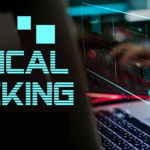Cyber security has become a critical concern for businesses, governments, and individuals alike. As technology grows, so do the risks of data breaches, hacking, and online fraud. To stay protected, organizations need experts who can identify weaknesses before criminals exploit them. Ethical hacking plays a vital role in this process. By simulating attacks and testing systems, ethical hackers help strengthen security and protect sensitive information. Those interested in learning these skills can benefit from enrolling in a Cyber Security Course in Coimbatore, which provides hands-on experience in modern security practices.
Identifying Vulnerabilities
Ethical hackers specialize in finding weaknesses in computer systems, networks, and applications. These vulnerabilities, if left unchecked, can be exploited by cybercriminals to steal data or disrupt operations. By discovering and reporting these issues, ethical hackers allow organizations to fix them in time. This proactive approach prevents potential breaches and ensures that systems remain secure from unauthorized access.
Testing Security Systems
One of the main tasks of ethical hackers is to perform penetration testing. This means they simulate real-world attacks on a system to see how it responds. By doing so, they can evaluate the effectiveness of security measures and identify areas that need improvement. Penetration testing is a crucial step in maintaining strong cyber security because it shows how well systems can withstand attacks before a real hacker tries to exploit them.
Preventing Financial Losses
Cyber attacks can cause huge financial damage to companies. Data theft, ransomware attacks, and system downtime can cost businesses millions. Ethical hackers help prevent these losses by strengthening defenses and suggesting improvements. By identifying weak points and fixing them in advance, organizations can save money, protect their reputation, and avoid the negative effects of security breaches. Enrolling in a Cyber Security Course in Madurai helps future professionals learn strategies to prevent such costly incidents.
Supporting Compliance and Regulations
Many industries are required to follow strict data protection rules and standards. Ethical hacking plays an important role in ensuring compliance with these regulations. By regularly testing systems and identifying potential risks, ethical hackers help companies meet legal requirements. This not only protects sensitive information but also reduces the chances of fines or legal problems caused by security failures.
Enhancing Customer Trust
Customers trust organizations that take their data security seriously. Ethical hacking helps build this trust by ensuring that personal and financial information remains safe. When companies invest in regular security testing and demonstrate proactive measures, they show customers that protecting their data is a top priority. This trust can lead to stronger customer relationships and a positive reputation in the market.
Educating IT Teams
Ethical hackers also help train internal IT staff. By sharing knowledge about common security threats, attack methods, and prevention techniques, they improve the overall security awareness of a company. This collaboration ensures that IT teams can respond effectively to real threats and maintain strong defenses, even after the ethical hackers have completed their assessment. An Ethical Hacking Course in Coimbatore equips learners with the expertise to educate and guide IT teams on modern security practices.
Identifying Emerging Threats
Cyber threats are constantly evolving. Hackers develop new methods to bypass security systems, making it essential for organizations to stay one step ahead. Ethical hackers study these trends and test systems against new attack techniques. By understanding emerging threats, they help organizations adapt and prepare, keeping systems resilient against modern cyber attacks.
Reducing Risk of Data Breaches
Data breaches can have long-lasting consequences, including financial losses, damaged reputation, and legal liabilities. Ethical hackers reduce this risk by identifying security gaps and ensuring proper safeguards are in place. By addressing vulnerabilities early, companies can avoid incidents that might otherwise compromise sensitive information and harm their operations. A Cyber Security Course in Pondicherry teaches the necessary methods to detect, assess, and mitigate such risks efficiently.
Promoting a Culture of Security
Ethical hacking encourages a culture of security within organizations. When leaders prioritize testing and proactive measures, employees become more aware of their role in protecting data. This culture ensures that security is not just the responsibility of a few IT professionals but a shared priority across all departments, creating a safer digital environment overall.
Ethical hacking plays a crucial role in strengthening cyber security for organizations of all sizes. By identifying vulnerabilities, testing systems, preventing financial losses, ensuring compliance, and educating staff, ethical hackers help build robust defenses against cyber threats. They also enhance customer trust and promote a culture of security that benefits everyone. As cyber attacks continue to grow in sophistication, the role of ethical hackers will remain essential in keeping systems safe and protecting sensitive data. Organizations that invest in ethical hacking-and individuals who take a Cyber Security Course in Tirupur, are better prepared to face future challenges and maintain strong security in an increasingly digital world.
Also Check:
How Does AI Contribute to Cyber Security and Threat Detection?






Recent Comments